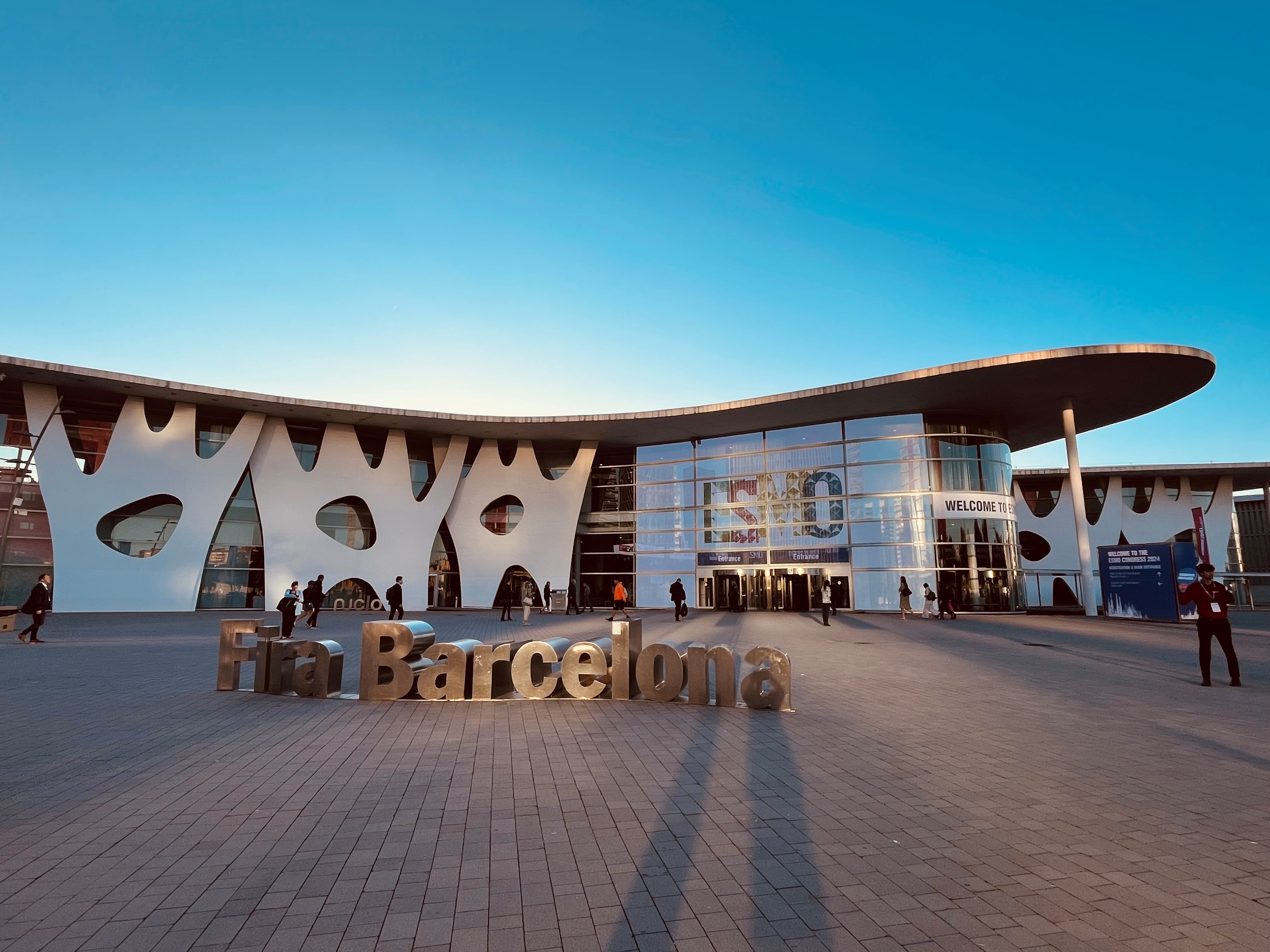ESMO 2024 – Today’s oncological roots are branching

What could a tree possibly reveal about the European Society for Medical Oncology (ESMO)? Quite a lot, says Prof Andres Cervantes, Professor of Medicine at the University of Valencia, Spain, and ESMO President. A veritable network of roots, myriad connections running through the solid ground, acting as support and collaboration both: such is ESMO, the annual meeting that showcases outstanding science.
Indeed, the global oncology community trusts ESMO to disseminate the latest results of cancer research. Why? Because it is the communication of scientific development that resonates with professionals in the field and supports their practice.
Transforming cancer research and care
So began the Opening Session at ESMO 2024 on Friday 13th September. Prof Cervantes went on to discuss how building that trust has been a several generation development, following five decades of effort. Oncologists need different forms of support at each stage of their career, and ESMO offers this, in amidst the possibility of workplace stress, and burnout, and emotional fatigue. So, the society is tree-like, providing solidity and strength to those who depend on it – season after season, and year after year.
Evolving from the ground up in this manner ensures that support also remains relevant. ESMO offers educational opportunities for everyone – from the undergraduate student to the seasoned oncologist – cultivating a diverse talent pool from which tomorrow’s leaders will emerge. Additionally, ESMO is committed to embracing emerging trends and technologies that have the potential to transform cancer research and care and, to this end, the new ESMO AI & Digital Oncology Congress 2025 will take place next year, 12th-14th November 2025, in Berlin, Germany. Across the board, though, precision medicine is what is driving cancer research forward; molecular profiling is replacing traditional methods of investigation and targeting. And, so too next year, the ESMO Targeted Anticancer Therapies (TAT) Asia Congress 2025 will explore the possibilities further, 18th-20th July 2025.
Essentially, said Prof Cervantes – whose main areas of research and clinical interest are gastrointestinal and gynaecologic malignancies, as well as phase I and early clinical trials and new drug development – the field should become a combination of better outcomes for patients and improved working conditions for oncology professionals both. And that latter consideration includes diversity, equity, and inclusion (DEI) in the workplace and in clinical trials. That people with cancer have the best possible access to improved cancer care, there must be better communications between the experts, and those experts must themselves represent the whole spectrum of humanity. Actively involved in EU discussions to bring about a resolution for delivery of this, with safety and future research balanced, ESMO is constantly on the front lines to tackle the big public health issues of our times – preventing the global plague of cancer from spreading.
This year marks the end of Prof Cervantes’ ESMO presidency and he is proud that ESMO has earned recognition as a reference point of information for the oncology community. As the future is embraced with open arms, he is confident current challenges will be overcome, if viewed as opportunities. A distinguishing marker of ESMO is the support given one another in service of the common good, and the society has remained steadfast in support of the International Cancer Foundation. Indeed, funding made available through the ICF is enabling various projects for delivery of better outcomes for patients in regions of the world that otherwise have not been served.
Women’s cancers and women in oncology
The ESMO scientific address was given by Professor Rebecca A. Dent, of the National Cancer Center Singapore, a career-long clinical and translational researcher as well as education-focused, academic clinician with sub-specialist interest in all aspects of triple negative breast cancer (TNBC) and young women with breast cancer. She presented the recipients of this year’s ESMO awards.
Dr Ann H. Partridge – vice chair of medical oncology at the Dana-Farber Cancer Institute, director of the Program for Young Women with Breast Cancer, director of the Adult Survivorship Program, Eric P. Winer MD and chair in breast cancer research at the Dana-Farber Cancer Institute, and Professor of Medical Oncology at Harvard Medical School – received the ESMO Award: Addressing the unintended consequences of cancer care.
Humbled and grateful for her award, Partridge noted that, worldwide, the majority of individuals diagnosed with cancer today will be long-term survivors. Specialising in breast cancer, there are groups of patients within that community, she said, that have more disparate outcomes – based on age predominantly, at least in the US. Scars both literal and figurative are being left and young age cancer has the worst outcomes – the question is why? How can those patients be helped from a disease standpoint as well as a social-psychic standpoint?
There was a strong drive on bringing women into focus at ESMO 2024 – whether as women’s cancers as focal research areas, women as patients in clinical trials, or women as leaders in oncology – and Dr Partridge raised the topic of fertility post and during treatment. Survivorship and quality of life are very much survival issues – non-adherence to cancer medication is high risk, but those same medicines can and do cause side effects, over which there is much fear and anxiety, particularly in endocrine therapy. One of those concerns is the ability to become pregnant. Pregnancy after breast cancer is feasible: a study by Dr Partridge and her team was published in the New England Journal of Medicine in 2023, in which it was shown that pregnancy itself was not associated with a worsening of cancer – in fact, the people that got pregnant got better than those who did not. And just this past July in Massachusetts, the governor signed into law a Fertility Preservation Law as part of the budget of the state.

Oncofertility: What every HCP involved in cancer care should know
An afternoon session chaired by Prof Matteo Lambertini – Associate Professor and consultant in medical oncology at the University of Genova and IRCCS Policlinico San Martino Hospital in Genova, Italy – together with Christine Wyns – Head of the Cliniques universitaires Saint-Luc's Gynaecology and Andrology Department, medical director of the Reproductive Tissue and Cell Bank, and Professor at Université catholique de Louvain (UCL) – sought to be an educative session on fertility and sexual dysfunction following cancer treatment, focused on the risk of gonadal toxicities with anticancer therapies and the potential for newer treatments in this area.
Isabelle Demeestere, Director of the Research Laboratory on Human Reproduction at the Université libre de Bruxelles, explained how chemotherapy gonadal toxicities (GTs) occur in both females and males.
An advanced disease stage often means higher level of gonadotoxicity, with which comes a risk of premature menopause. 2020 ESMO guidelines classified GT according to regimen and patient age, but for many drugs there is a gap of knowledge about GTs. Therefore, one strategy is escalation or de-scalation of dose intensity.
With all the new therapeutic agents, posited Demeestere, there might be a potential non-chemotherapy future. More human studies are needed, though.
Meanwhile, Lambertini himself spoke on fertility preservation and beyond in female patients with cancer, saying how all patients should be fully informed about the toxicities and risks, as all systemic treatment may translate into a gonadotoxic effect. Also, a network of fertility specialists should be referred to for patients to receive in-depth counselling on fertility preservation and procedure, he advised.
There has been strong ASCO and FDA data on the need to gather further data on ovarian reserve, which in cancer care may have some value. When chemotherapy is given, the markers drop down to almost nothing during treatment. In breast cancer, these markers have been used for careful definition of menopause (premature ovarian dysfunction also) to help decide the type of endocrine therapy to offer.
Next, Wyns herself spoke on fertility preservation and beyond in male patients with cancer, touching upon the potential of ‘cryobanking’, also. And Christiane Bergerot – head of the Department of Psycho-Oncology at Grupo Oncoclínicas, Brazil – discussed how best to address sexual health in female and male patients with cancer.
More than 12 million cancer survivors are affected by sexual dysfunction, she said, with over half of the respondents white and female and educated, and diagnosed before the age of 40. But sexual health is not just intercourse, instead including also intimacy, arousal, desire, and satisfaction. And it affects men and women differently. The Basson Model of Female Sexual Health notes the psychology behind a woman’s arousal, while the Katz-Dizon Model for Men after Cancer, focuses on the centricity of the physical, both real and perceived.
What transpired, though, was the notion of ‘the patient as whole person’ – certainly one of the Congress’ central themes this year.
Whole Genome Sequencing and mutational signatures
Prof Serena Nik-Zainal, Professor of Genomic Medicine and Bioinformatics at the University of Cambridge, CRUK Advanced Clinician Scientist, and Honorary Consultant in Clinical Genetics, received the ESMO Award for Translational Research: From bytes to bedside using mutational signatures in cancer.
Nik-Zainal’s research interests are whole genome sequencing (WGS) in cancer and mutational signatures. WGS gives the whole remit, a snapshot of driver mutations, gene fusions (from one to five in each person’s cancer), and thousands of passenger mutations, come from mutational signatures. Next-generation sequencing is also digital. When you sequence, you get a final portrait and the whole genome can be decomposed to seek out the signature.
A relatively ‘young’ field still, nothing is yet dogma. Experimental studies are still necessary for validation – and to prove that it’s not just “mathematical hocus pocus,” said Nik-Zainal. But the clinical value of whole genome sequencing lies in the fact that whole genomes are tumour agnostic and are therefore able to identify things not previously thought to be looked for: it is a perfect field for machines to sort through the mass of data. Every whole genome has important information and every tumour is highly personal. The patient sitting in front of you, Nik-Zainal said, has an individualised genome and you don’t know what’s in it until you’ve analysed it.
The ESMO Women for Oncology Award: Bridging gaps in lung cancer research and gender equity was awarded to Dr Myung-Ju Ahn, Professor of Haemato-Oncology at the Department of Medicine at the Sungkyunkwan University School of Medicine, Republic of Korea. She also currently serves as Chairman of the Korean Association for Lung Cancer (KALC) and her research interests include developing predictive and prognostic markers for personalised lung cancer therapy. Dr Ahn focuses also on early clinical trials for drug discovery, repurposing of targeted drugs, and developing a NSCLC genome atlas.
Upon receiving the award, Dr Ahn noted how it was not just a reflection of her work, but the collective work achieved together with her colleagues in oncology. She was deeply grateful for the honour, “especially as an Asian woman doctor,” she said, and charted the many women scientists who had steered her at junctures along the path to where she is today.
Carving out the road ahead, post a lifetime's work
It was Prof John Haanen, however, who received the ESMO Lifetime Achievement Award: Empowering T-cells to fight cancer. Positioned at the Netherlands Cancer Institute and Professor of Translational Immunotherapy of Cancer at Leiden University, Netherlands, Prof Haanen is an internationally renowned expert in oncology, renowned for his research excellence, science, and discoveries, as well as patient care and mentoring the new generation of researchers. T-cells have been at the heart of his research for his whole career.
Success in cancer research doesn’t come naturally, admitted Prof Haanen, rather it is the result of hard work, dedication, devotion, sacrifice, and some luck.











